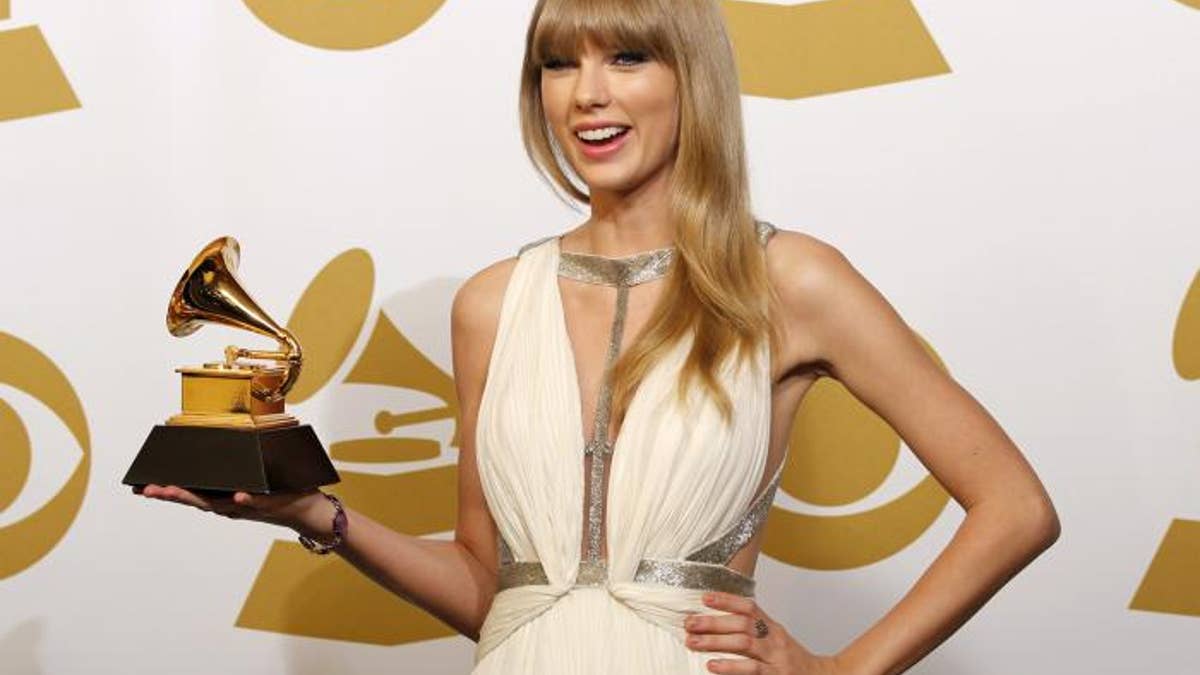
(Reuters)
With so many awards ceremonies lumped together around this time of year, it's easy for the Grammys to get lost in the mix. That's especially true now that several similar ceremonies have entered the scene, like the AMAs, the CMAs, the ACMs, the VMAs, the BET Hip Hip Awards and the Billboard Awards, to name a few.
That doesn't mean the Grammys won't be worth watching, though. The telecast is usually full of over-the-top fashions, controversial moments, and great performances from established musicians and newcomers alike. And even if the show is lacking, there's still a wealth of great Grammy trivia to keep you entertained between the more boring acts.
If you're the kind of person that still watches the Grammys despite the existence of the CMT Awards, the MuchMusic Awards or YouTube Awards, feel free to bore your friends and family with the following trivia when the show gets stale:
#1. The Grammys were created after a group of record company executives were asked to participate in the Hollywood beautification campaign — which was responsible for choosing the honorees for the Hollywood Walk of Fame — and collectively came to the realization that they didn't have their own award ceremony like that of the movie or television industry.
#2. Shelby Lynne was awarded the Grammy for Best New Artist in 1999, despite being active in the recording business for many years prior and releasing six well-received albums. (Grammy guidelines allow for eligibility in the year of "the recording that first establishes the public identity of that artist as a performer," rather than simply the artist's first album.) She acknowledged this fact in her acceptance speech when she said, "Thank you very much. Thirteen years and six albums to get here."
#3. Before settling on the term "Grammy," the National Academy of Recording Arts and Sciences chose "Eddie" as the nickname for the statuettes given out at their awards ceremony (which itself was initially knows as the Gramophone Awards). The nickname was a nod to Thomas Edison, the inventor of the gramophone.
#4. When the flute-heavy album "Crest of a Knave" by Jethro Tull won the Grammy for Best Hard Rock/Heavy Metal Performance in 1989 — beating out Metallica, the favorite to win — audible boos and hisses could be heard from the crowd. Many attendees simply didn't consider Jethro Tull to be a hard rock or heavy metal act, including Ian Anderson, the lead vocalist/flutist of Jethro Tull himself. (He didn't even bother attending the ceremony.) In defense of Jethro Tull, their record label later released a cheeky congratulatory ad that read, "The flute is a heavy, metal instrument." And at the 1991 Grammy Awards, when Metallica won their first Grammy for Best Metal Performance, they gave a backhanded thank-you to the band. "We gotta thank Jethro Tull for not putting out an album this year," drummer Lars Ulrich joked to the crowd.
#5. Country artist LeAnn Rimes is currently the youngest individual Grammy winner of all time, earning her only two awards at age 14 in 1997. (Though not as an individual act, singing sisters Leah, Hannah and Sarah Peasall earned the Album of the Year Award at ages 7, 9 and 13 for contributing to the soundtrack of "Oh Brother Where Art Thou?"). The late blues pianist Pinetop Perkins was the oldest at age 97, earning his last Grammy in 2011 for a collaboration album he recorded with Willie "Big Eyes" Smith.
#6. A week after their infamous "wardrobe malfunction" at Super Bowl XXXVIII, Justin Timberlake and Janet Jackson were invited to appear at the 46th annual Grammy Awards, but only only under the provision that they apologize for the incident. Jackson, who wasn't nominated for any awards that night, declined. But Timberlake, who was nominated in three categories (and would win in two), attended the ceremony and made his apology while accepting his award for Best Male Pop Vocal Performance. "Listen, I know it's best a rough week on everybody," he said. "What occurred was unintentional, completely regrettable, and I apologize if you guys were offended."
#7. The first Grammy Awards (known at the time as the Gramophone Awards) were held in 1959, yet the ceremony didn't air live on television until 1971. ABC eventually agreed to air a live telecast on the condition that executive producer Pierre Cossette obtain Dean Martin, Frank Sinatra or Andy Williams to act as host — but Cossette didn't even bother asking the first two choices. "I went hot and heavy after Andy Williams because I figured that Dean wouldn't do it and neither would Sinatra," he told Billboard in 2008. (Williams, however, didn't seem aware of this fact during an interview he did for Grammy.com in 2008.)
#8. Sinead O'Connor is the only artist to refuse a Grammy. Her album, "I Do Not Want What I Haven't Got" won for Best Alternative Musical Performance in 1991 (the category's debut year), but she boycotted the ceremony entirely. In a letter to the National Academy of Recording Arts and Sciences, O'Connor explained that she was protesting the ceremony's commercialism.
#9. Brian McKnight holds the record for being the most nominated artist to never actually win a Grammy. Between 1994 and 2005, McKnight was nominated a whopping 16 times, only to lose every time.
#10. The Grammy trophies are hand-crafted in Colorado by a team led by sculptor John Billings, who was an apprentice to original Grammy craftsman Bob Graves. Each statuette is molded from a zinc/aluminum alloy (Billings calls it "Grammium" because "it sounds so much more regal") before being hand-filed, buffed, electroplated in 24-karat gold, attached to a laquered metal base, and polished. He estimates each Grammy takes 15 to 20 hours to produce. (Billings also crafted the 48 "stunt Grammys" which are reused for the live ceremonies; the winners get their actual Grammys delivered to them, fully engraved, after the show.)








































